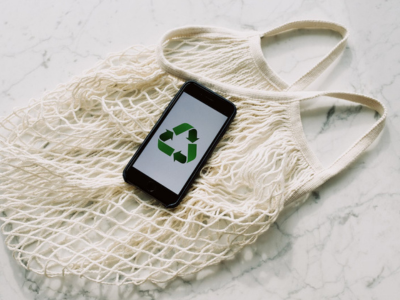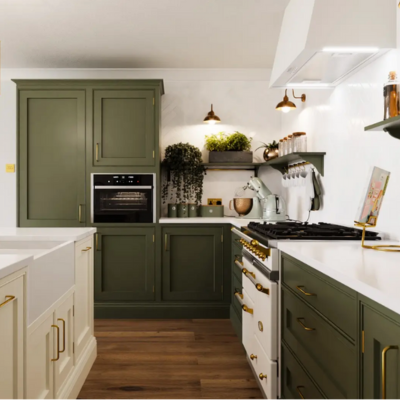According to a projection from the Ellen Macarthur Foundation, there will be (by weight) more plastic in the sea than fish by 2050. Of this plastic, 50% will be single-use, meaning that it can only be used once before being discarded.
In an effort to fight this rising tide of single-use plastic waste, the ‘Plastic Free July’ campaign was founded in 2011 – an international movement that an estimated two million people participated in last year. Here at Rehome, we will be taking part in their #GoPlasticFree challenge as part of the ‘Plastic Free July’, and would encourage everyone else to do the same – starting with their kitchens.
Our kitchens are a hotbed for plastics and non bio-degradable products: from clingfilm and sandwich bags, to the very materials that make up our kitchen cabinets. So, to make it even easier for you to start reducing plastic waste and #GoPlasticFree, we have compiled our favourite handy tips for your kitchen:
Plastic free Trust Mark
Reducing plastic waste in your kitchen starts with avoiding unnecessary plastics in the supermarket. Environmental campaign group A Plastic Planet have recently created the Plastic Free Trust Mark, a label that informs shoppers whether food and drink products use plastic packaging. The initiative hopes to make consumers more aware of their plastic consumption and encourages them to reduce the purchasing of single-use plastic packaged products.
Earlier this year, Iceland pledged to become the first major supermarket to remove plastic packaging from all of its own-brand products by the end of 2023. As of May, continuing with their fight against plastic waste, the retailer will be the first to use the Plastic Free Trust Mark on all of its own-brand items to help shoppers choose plastic-free packaging.
So, the next time you pop out to the shops, keep an eye out for products with the Plastic Free Trust Mark, and of course remember to bring your own re-useable shopping bag!
Plastic free tea bags
Us Brits consume 165 million cups of tea per day in the UK alone – with 96% of those cuppas made from tea bags. However, what many of us aren’t aware of is the plastic that these tea bags contain.
Tea bags are made of a plastic called polypropylene, the same plastic used to make drinking straws and bottle tops. In tea bags, it is used as a sealant to keep the bags shut, as well as helping them maintain their shape. Though the amount of plastic in each tea bag may be small, the whopping 60.2 billion teabags used in the UK each year means that huge amounts of polypropylene are regularly being dumped in landfill.
However, if you can’t go a day without a brew, there is no need to fear. “There is no reason why enjoying a cuppa should mean adding to our plastic waste problem,” Louise Edge, senior oceans campaigner at Greenpeace UK, told HuffPost UK. “Plastic-free alternatives already exist”.
One such alternative is the Teapigs Temple Tea Bags. In these teabags, the string is made from cornstarch and the bags are sealed with heat instead of plastic. This means their tea temples are both fully biodegradable and plastic free.
Pukka Tea have also developed a new way to seal their tea bags: ingeniously stitching their bags shut with organic cotton string. The result is delicious tea bags which are fully compostable.
Alternatively, why not make it your resolution to try a loose-leaf tea with a reusable metal infuser? This method will really cut down your plastic waste and often works out cheaper than tea bags – it’s a win win!
And we all know about coffee pods right?……………disposable coffee pods are a definite NO NO! If everyone stopped using these we would divert 20 BILLION coffee pods from landfill each year! Other options to consider include refillable pods, an Italian expresso coffee pot or a French Press. Your coffee will taste just as good and you will save a fortune too.
Cling Film Alternatives
While many of us use cling film in an eco-friendly effort to preserve leftovers and reduce food waste, cling film and food wrap are some of the biggest kitchen culprits when it comes to single-use plastics. Thankfully, it is now possible to avoid this sticky situation with the many cling film alternatives available on the market.
We think reusable wraps made from natural beeswax are a super cool eco alternative to food wrap. Instead of sticking together like cling film, these wraps are activated by heat from your hands. To use, simply place the wrap over the food you wish to cover and then mould it around with your hands. These wraps are not only a plastic-free alternative; they also contain tree resin and jojoba, both of which are anti-bacterial and natural preservatives. Once you have finished using them, simply wipe them down with washing up liquid and warm water and leave to dry – and voila, ready to re-use again and again!
Bowl of leftovers — don’t reach for cling film, use a plate instead!
Alternatively, you can get creative with your kitchen crockery to save on the plastic. Got a bowl of leftovers? Why not cover the bowl with a plate instead of reaching with the cling film? For reheating the food later, simply pop a non-metallic plate on top to avoid food splatters. So simple, so thrifty, and plastic free!
Ditch the Dish Brush
When thinking about reducing plastic use in our kitchens, soft plastics such as cling film and cellophane wrappers are usually the first things that spring to mind. However, there are many hard plastics that we use every day in our kitchens without even thinking about it.
One such product is the humble dish brush. Like our tooth brushes, we do re-use our dish brushes every day and replace them around once a month. These hard plastics can take up to 1000 years to decompose after we put them in landfill.
To keep your eco-conscience as clean as your dishes, why not invest in some bamboo cleaning products. Items like the ProCook Bamboo Dish Brush cost around the same as their plastic counterparts but are made from 100% natural Bamboo, the world’s fastest renewable resource.
Additionally, have a go at making your own cleaning products and store them in reusable spray pots. The Plastic Free July initiative have compiled a list of cleaning supplies, such as disinfectant and shower cleaner, that are super easy (and cheap!) to make yourself at home.
Recycled Kitchens
Thinking about buying a new kitchen and looking to make an ethical choice? Usually when we buy a new kitchen, we dispose of our used kitchen into a skip; incurring a significant cost in the process both financially and to our environment. Around 30% of the kitchens skipped in the UK can be regenerated and reused by eco/cost conscious buyers and you’ll be delighted to hear that in selling your used kitchen our Carbon Calculator predicts that it will also give you and a family a full year of living carbon neutral! To find out more, please see our explanatory video.











